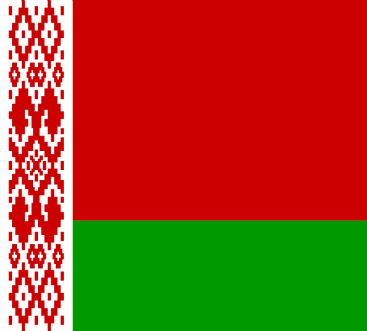Mr. President, as Co-Chairman of the Commission on Security and Cooperation in Europe, I want to update colleagues on developments in the Republic of Belarus, a country with the poorest human rights record of any country in Europe today. In the last year, Belarusian dictator Lukashenka’s assault on civil society has steadily intensified, with the liquidation of NGOs, violence against opposition activists, and repression of the independent media and trade unions. The situation in Belarus continues its downward spiral with daily reports of growing repression and new human rights violations.
Since the beginning of the still relatively New Year, NGOs such as the Belarusian Language Society and the Belarusian Helsinki Committee have experienced increased harassment. The Minsk City Court has ordered the liquidation of the Independent Association of Legal Research. Leaders of the opposition “Five Plus” bloc, who are in Washington this week, were recently detained and searched by customs officials at the Polish-Belarusian border. The officials were reportedly looking for printed, audio or video materials that could “damage the political and economic interests of the country.” Human rights activists or independent journalists such as Natalya Kolyada, Nina Davydowskaya, Iryna Makavetskaya, Aksana Novikava and Aleksandr Silitsky continue to be subjected to threats, detentions or heavy fines. Others, including activists of the youth group ZUBR, have been arrested for holding an unauthorized picket demanding a thorough investigation of the disappearances of three democratic opposition members Yuri Zakharenka, Victor Gonchar, Anatoly Krasovsky, and journalist Dmitri Zavadsky.
Independent media outlets also continue to feel the wrath of the powers that be, including libel proceedings against Narodnaya Volya, Belarus’ largest independent daily; the confiscation of Asambleya, a bulletin of the Assembly of the Belarusian Democratic NGOs; the refusal by the Belarusian Postal Service to distribute the independent newspaper Regionalniye Novosti; the confiscation of copies, in the town of Smorgon, of the independent newspaper, Mestnaya Gazeta; and the censoring of the independent newspaper Volnaya Hlybokaye in the Vitebsk region. Several Jewish cemeteries are being destroyed, Baptist congregations are being fined and Krishna followers detained.
In an unusual step, the International Labor Organization, ILO, has established a commission of inquiry, only the eleventh time in the body’s 84-year history, to examine violations of trade union rights in Belarus. Meanwhile, the Parliamentary Assembly of the Council of Europe’s Committee on Legal Affairs and Human Rights unanimously ratified a report on political disappearances in Belarus. The just-released report severely criticizes the Belarusian authorities, stating that “steps were taken at the highest level of the State actively to cover up the…disappearances” of several high-profile members of the opposition in 1999 to 2000 and that senior Belarusian officials may be involved.
Last year I introduced the Belarus Democracy Act of 2003, S. 700, which is designed to help promote democratic development, human rights and rule of law in the Republic of Belarus, as well as encourage the consolidation and strengthening of Belarus’ sovereignty and independence.
While some might be tempted to dismiss Belarus as an anomaly, the stakes are too high and the costs too great to ignore. It is important for us to stay the course and support Belarus in becoming a genuine European state, in which respect for human rights and democracy is the norm and in which the long-suffering Belarusian people are able to overcome the legacy of dictatorship- past and present. The Belarus Democracy Act, which enjoys bipartisan support, is an important, concrete way to exhibit our support. I urge colleagues to support this measure and look forward to timely consideration of the Belarus Democracy Act.









